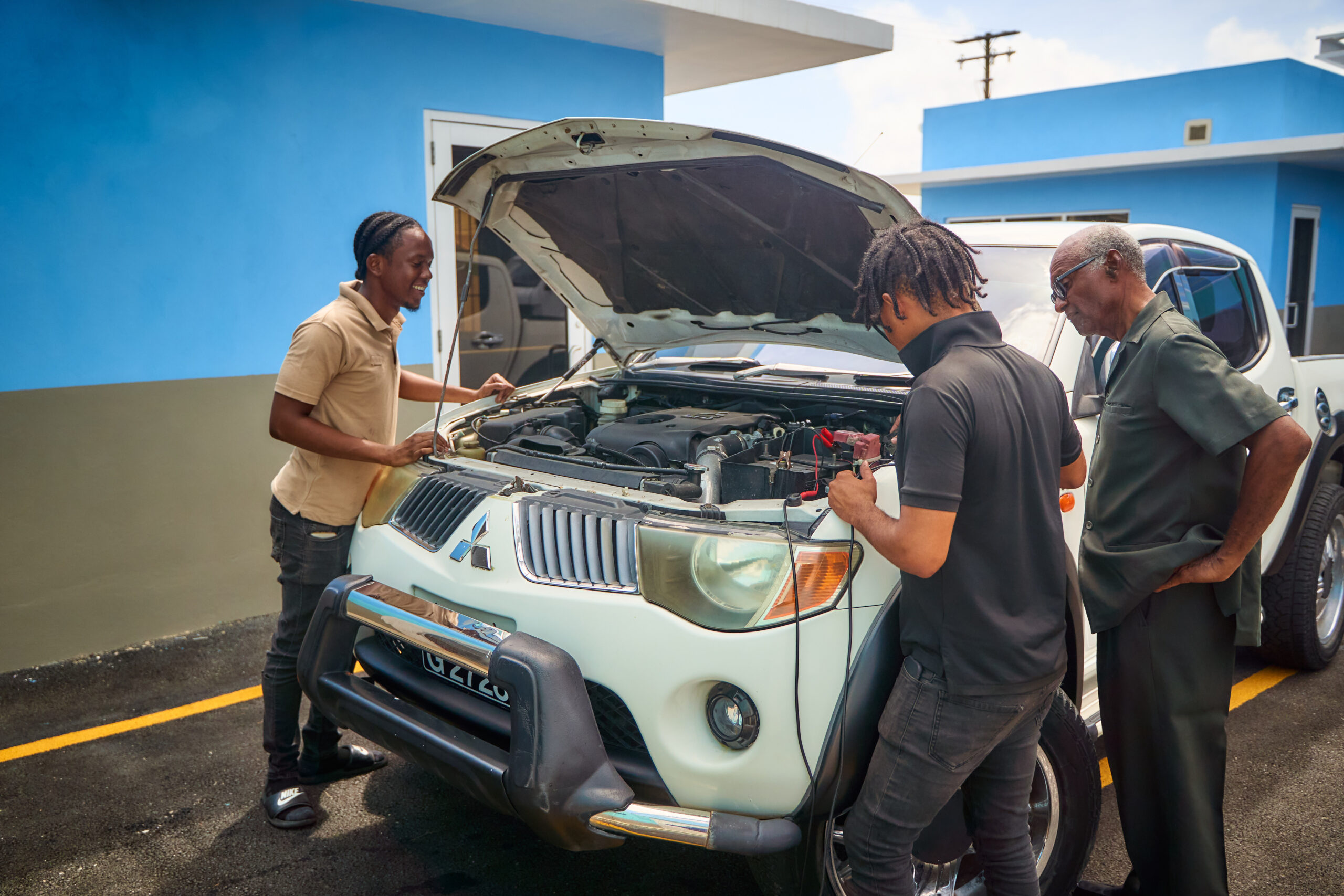The launch of The Bay Grazettes, a shared-use mechanics facility at the Grazettes Industrial Park, marks a significant step forward for Barbados’ automotive repair industry. This is a commendable initiative by Export Barbados (BIDC) to provide roadside mechanics with a conducive environment to conduct their operations efficiently.
Indeed, Barbados’ industrial revolution that began in the mid-1950s with the Barbados Development, later the Barbados Development Board, has been the face of seismic change as the island sought to throw off the shackles of sugar monoculture and embark on light industry.
Yet even as the development board gave way to the late 1960s and the Barbados Industrial Development Corporation, Export Barbados’ predecessor, the embrace of foreign direct investment led to a relentless chase of multinational firms and overseas entrepreneurs. Few places have seen the rapid pace of industrial and technological change.
Some of its early workers in the electronic punch card-driven data processing industry at Grazettes are now octogenarians and a once sprawling sugar estate became the home of everything from garments to solar water heaters to printeries. Jobs to feed the workers in the nearby public housing estates that surrounded the industrial park in an era of rapid change as life prospects were lifted from field to factory.
Export Barbados has itself matured by embracing the domestic economy as a source of wealth-creation and job growth, ending the exclusive pursuit of fool’s gold with tax holidays and duty-free concessions that were exploited with gay abandon by business buccaneers. The industrial ghost towns they left behind need not continue to haunt us.
We note, however, with a sardonic nod to the warm embrace of the same-old same-old, that the transition from traditional roadside repair to purpose-built bays will face resistance from operators who are accustomed to working independently on the streets. It’s time for our friendly neighbourhood mechanics to come to grips with change and support Export Barbados’ effort to bring community mechanics into more purpose-built bays.
Our roadside mechanic tradition, doubtless convenient for some, has long posed serious issues for many. Roads clogged with broken-down vehicles, oil spills, noxious fumes, and noise pollution have been ongoing concerns for many. Urban and suburban communities suffer when emergency first responders cannot traverse blocked roads, and health authorities are frustrated by wrecks leaking hazardous materials while harbouring vermin.
Not for nothing, restrictive covenants have emerged in residential developments that prohibit roadside mechanics and heavy-duty vehicle garages. The romance of the car-lover turned car-fixer has long given way to a sober reality of unsightly, often inconsiderate neighbours.
The Bay Grazettes offers a solution to these issues by providing mechanics with spacious workshop areas equipped with amenities in an industrial zone, thus elevating the standard of automotive repair, addressing community concerns and maximising added value.
The benefits of transitioning to purpose-built facilities are evident. Mechanics like Jefferson Bovell and Tigana Yarde, the two occupants of The Bay Grazettes who have embraced the change, attest to the positive impact of working in a secure and professional environment. Customers also appreciate the improved conditions and security offered by The Bay Grazettes. This is a testament to the potential for positive transformation within the automotive repair industry, economic empowerment and community development. And the environment and public safety win, too.
Who says Bajan consumers can’t have nice things? Who says the proverbial poor black man must live, look and feel poor as he makes an honest living?
We accept that challenges remain, as highlighted by concerns about rental fees and operating hours. While the initial costs may seem daunting for some, it is crucial to recognize that long-term investment leads to long-term dividends. A conducive working environment not only enhances efficiency and professionalism but also contributes to a cleaner and safer community.
Moreover, the emergence of electric vehicles signals a broader shift in the automotive industry. As technology evolves, so too must the skills and practices of mechanics. The days of the “grease monkey” are behind us. Mechanics now require a diverse skill set to handle the complexities of electric vehicles and computer-driven diagnostic and control systems. Transitioning to purpose-built facilities is a step towards shedding outdated stereotypes and embracing the professionalism that modern automotive repair demands. Change is always coming.
To address the needs of older, financially disadvantaged mechanics resistant to the BIDC’s bay concept, BIDC and the government as a whole would need to consider offering subsidies or grants for rental costs. Access to microfinance options could empower mechanics to adapt to evolving industry demands. In the long term, inclusive dialogue will be essential to developing support systems that ensure no mechanic is left behind in the rollout of the mechanic bays across the nation. We expect BIDC to be ever mindful of the need to prioritise equity and accessibility in the quest to make a rising tide lift all boats.
And mechanics will need to respect planning zones and rules. Simply handing over a plot of land to a neighbourhood mechanic is not simple at all.
Export Barbados (BIDC) deserves praise for the community mechanics initiative that gives them badly needed room to manoeuvre. The Bay Grazettes is a promising model facility. We would go further to suggest that this should form the basis of community regeneration with service-based cottage industries in the many abandoned school buildings across the land.
This would require Export Barbados’ cooperation with the ministries for education, lands and public works – a tall order for our labyrinthine leviathan that is the central government. This new development at Grazettes points the way, not to an end in itself but towards a wider policy of inclusion, integration, empowerment and innovation.




